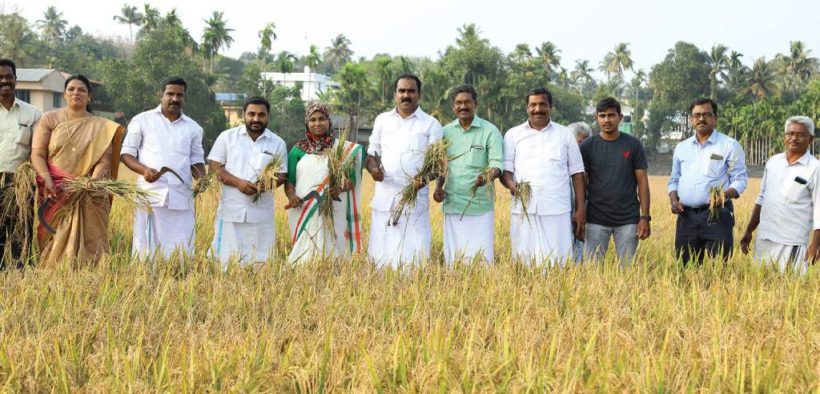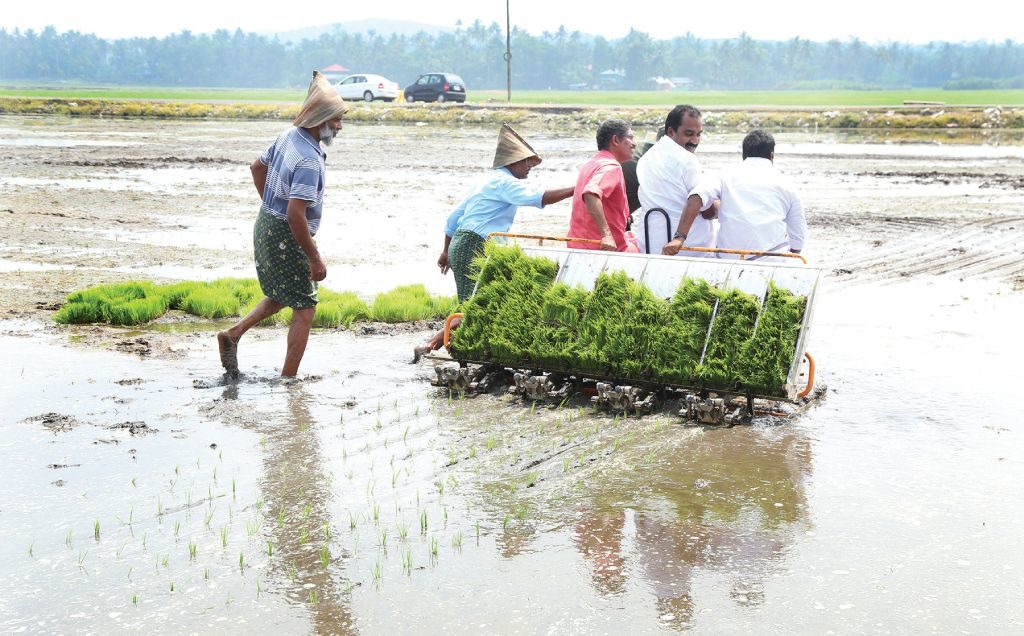Sign Of Change

A youth collective in Kerala, led by Ansar T M, is transforming a village’s wastelands to paddy fields and sustainable farms
Unassuming is the word that comes to mind as one talks with the 33-year-old Ansar T M. In his modest voice, though, Ansar tells a story of a turnaround so breathtaking that one cannot but feel humbled by the grit needed to achieve it. Once home to beautiful paddy fields, the tiny village of Chorrnikkara was famed for its agricultural prowess. Modernisation took a toll on that, luring farmers away from their traditions. Agricultural land was soon filled up, restored and commercialised.
“WE NEEDED ALL THE TECHNICAL HELP WE COULD GET. WHILE WE CANNOT CLAIM THAT OUR PRODUCE IS 100 PER CENT ORGANIC BECAUSE OF THE STATE THE SOIL WAS IN BEFORE WE RECLAIMED IT, WE DO ENSURE THAT WE DO NOT USE CHEMICAL FERTILISERS AND INSECTICIDES.”
Ansar T M Adayalam Self Help Group
“Urbanisation is swallowing up our land,” says Ansar. What is worse is that drinking water sources began drying up. “We wanted to revive and purify our sources of drinking water,” he says. “The community is quite close knit, and we get together for various activities, from sports to cultural tests. So why not for farming?” Ansar decided to focus on two paddy fields, Chavaru Padam and Katte Padam (Padam translates to paddy field in Malayalam).The two had become sludgy wastelands. No longer good for farming, the place was a reservoir for sewage, factory waste, discards from butcher shops, and more. “People had to hold their nose while passing Chavaru Padam,” recalls Ansar. That is, until 2008, when a group of 17 youngsters led by Ansar decided to do community farming on these lands. They took up more than 30 acres of Chavaru Padam and 15 acres of Katte Padam, and started farming. The youth group call themselves Adayalam (meaning, sign). They work hand-in-hand with the local panchayat and Krishi Bhavan officials. “None of us have any experience in farming,” explains Ansar. “So we needed all the technical help we could get. We cannot claim that our produce is 100 per cent organic because of the state the soil was in before we reclaimed it, but we do ensure that we do not use chemical fertilisers and insecticides.”

Though initiated in 2008, farming was discontinued until 2015, which was when Adayalam was able to regroup and set things on track. There has been no looking back since. “The state subsidised 89 per cent of the total expenses for salvaging the wasteland,” says Ansar. Adayalam distributed the first rice harvest to 9,000 ration card holders in Choornikkara panchayat at Rs 35 for Rs 2/kg in 2017, sharing one-fourth of the total profit with the landowners. Over the next two years, this became one-fifth of the total profit. Landowners are happy, though, as they are earning up to INR 70,000 from what they had given up as wasteland. The Kerala floods hit Choornikkara badly last year. But it turned out to be a blessing in disguise. The receding waters left behind silt, which is extremely fertile soil. “The Krishi Bhavan officials advised us to collect this,” says Ansar. The youngsters are realising that Nature is like a mother, loving and reprimanding in turn, and they are beginning to love her like one, in return for basketfuls of blessings.
Back to A Nation of Change Makers
















